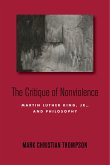The reception of Marquis de Sade in French postwar philosophy Following World War II, many well-known French philosophers wrote extensive studies on the works of the Marquis de Sade. But there is still no clarification of what precisely is argued in that research. Lode Lauwaert offers in-depth readings of a range of interpretations of Sade in French postwar philosophy - looking specifically at Pierre Klossowski, Maurice Blanchot, Georges Bataille, Jacques Lacan, Roland Barthes and Gilles Deleuze. Lauwaert argues that these French philosophical Sade interpretations can be read as a lively introduction to a postmodern way of thinking, where the subject is taken away from the centre of the universe and is seen as an expression of a non-human force. He therefore outlines the necessary background in which to better understand contemporary thinkers such as Catherine Malabou and Quentin Meillassoux. Lode Lauwaert is a Postdoctoral Researcher and Lecturer in Philosophy at the University of Leuven.








